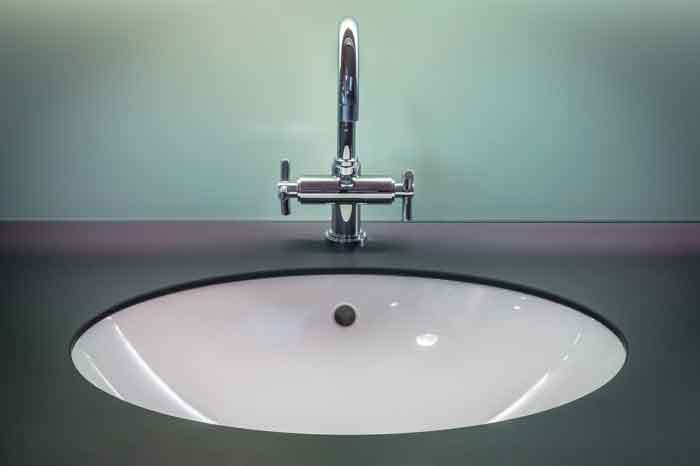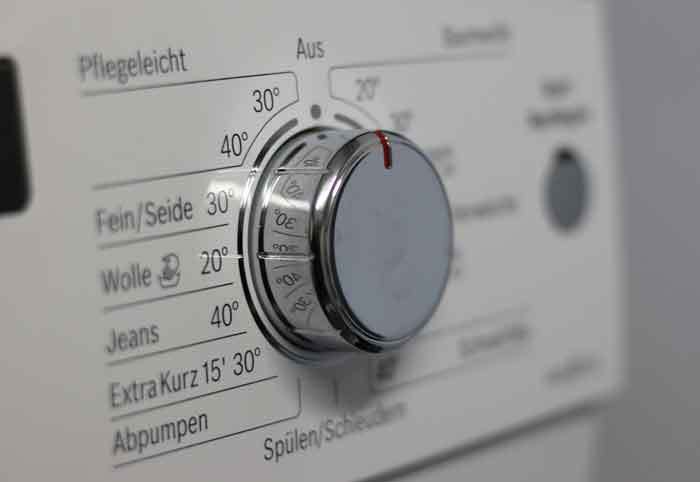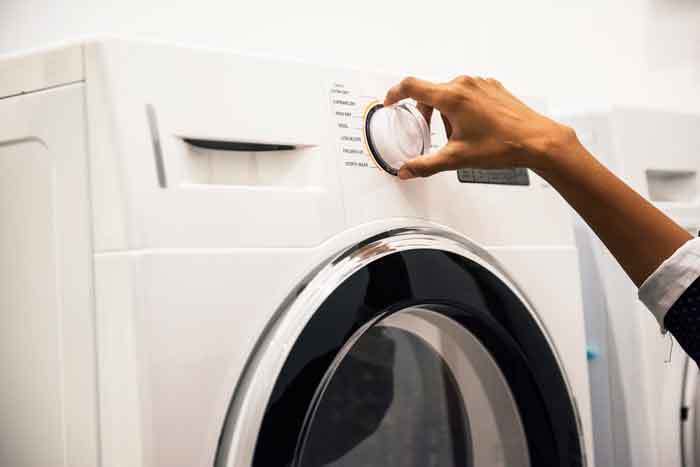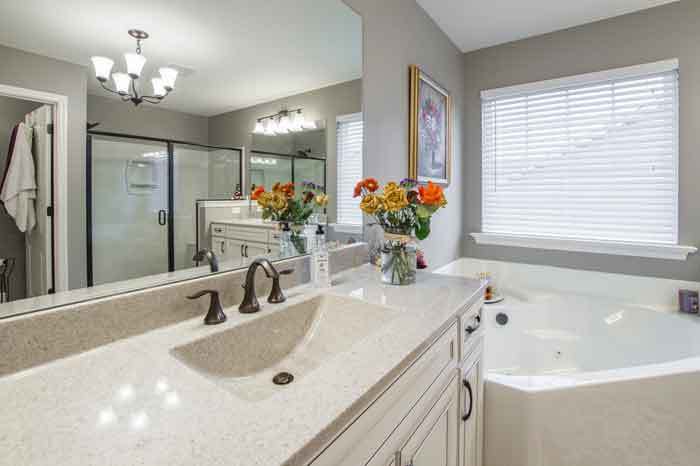Disclaimer: This post may contain affiliate links, meaning we get a small commission if you make a purchase through our links, at no cost to you. For more information, please visit our Disclaimer Page.
In case you are experiencing strange and bubbly sounds coming from your sink that means that your sink gurgles. Simply put, the air from the sink drain pipe is coming out of the sink which makes this sound.
So, why is this happening? Well, sink gurgling is caused by pressure difference inside drain pipes of your plumbing system.
This means that your washing machine drain is probably connected to the sink drain so that’s why you hear your sink gurgle only when your washing machine is on.
Nevertheless, let’s see exactly what you are dealing with here.

What is that Sink Gurgling Sound?
So, what is going on down there and why does your sink make this exact sound?
Well, since your sink drain and your washing machine drain are connected, they share the same vent and the same main drain pipe.
In that case, when the washing machine releases a big amount of water down the drain, that will push the air through the pipes and the air will leave at your sink drain.
It all happens because of the pressure difference that is created for numerous reasons.
Anyhow, you will need to create a normal pressure inside your drain pipes in order to stop your sink from gurgling. That is usually easy to do if you have a fully functional vent that allows the air to exit the plumbing system through the vent.
However, if your vent is clogged or has some blockage, then the air will build-up inside drain pipes so when a significant amount of water enters the drainpipe, the air must leave somewhere.
That’s why the air finds its way up to the sink drain and it leaves there.
Why does your sink gurgle when the washing machine drains?
As we already said a couple of times, the main reason why your sink is gurgling is that there is a significant pressure difference inside your drain system.
So, the real question here is why is there a pressure difference inside your plumbing system?

Here are a couple of answers:
Sink Vent Malfunction
Now, if you hear your sink gurgling when your washing machine is on, that means that there might be a problem with your sink vent. In that case, there are usually two reasonable conclusions here:
1. Sink vent is not installed properly
The first thing that might cause your sink to gurgle is poor installation of the sink vent. Now, if the sink drain uses 1 ½ inch drain pipes, that means that the sink vent must be at installed at least 3 ½ feet from the bottom of the trap.
If that’s not the case, the vent won’t be able to pump out enough amount of air and that will create a pressure difference inside your plumbing system.
The washing machine will release water under huge pressure and the vent won’t be able to regulate that pressure so the sink will gurgle.
When the vent is installed farther than the 3 ½ feet from the bottom trap, there will be a vacuum effect developing inside your drain pipes. This vacuum effect will cause your sink to gurgle since it will push the air through the sink drain.
2. Sink vent is clogged
If the vent is installed properly and everything is fine with the plumbing, then that means that something is wrong with the vent itself. Now, there are a couple of things that can make a sink vent to malfunction.
- Blockage
The gurgling noise that comes from your sink might be directly related to the sink vent blockage. This means that when water from the washing machine rushes down the drain, the air will be pushed inside a vent and since the vent is clogged, the air will find its way up to the sink drain.
That’s how your sink gurgles when the washing machine pours down the drain a certain amount of water under high pressure.
- Leakage
The same goes when the sink vent is leaking somewhere. Namely, when the sink vent is leaking that means that the pressure is low and the air simply can’t get out of the vent so it finds its way up to the sink drains.
Low pressure and the vacuum effect that we explained earlier will create a gurgling sound inside your sink when the washing machine is on.

Main Vent Malfunction
Something similar happens when the main vent is malfunctioning as well, but, the problem is much worse if the main vent is clogged.
So, as we all know, this vent regulates the pressure inside the drain system and if there are any clogs inside the vent, the pressure will increase.
This means that when the washing machine starts releasing water down the drain that is connected to the sink drain, the air will actually be trapped inside the main drain pipe.
In that case, the first place where the air can leave is the vent, but if the vent is clogged, that means that the air will exit through the sink drain.
That is why your sink is gurgling. So, these things need to be lined up in order for the gurgling sound to happen:
- Sink and washing machine drains are connected
- The main vent is clogged
- The washing machine is releasing water down the drain
- The sink drain is the first place for air to leave after the main vent
- Gurgling in the sink occurs
As we can see, this problem can definitely be a little bit harder to deal with, so, you should probably ask for professional help. Repairing vents and regulating pressure inside the drain is not an everyday job that anyone can do.

Conclusion: Gurgling Sink When Washing Machine Drains
Sink gurgling is not a thing to ignore since it can really ruin your whole drain system and therefore your bathroom will be useless.
So, if you don’t want your bathroom to be completely useless, we strongly recommend that you deal with this problem as soon as possible.
Dealing with the gurgling noises from the sink is nothing compared to what comes if you ignore it.
